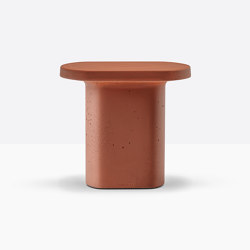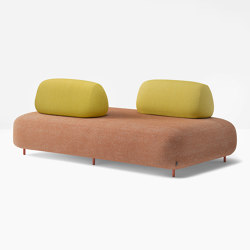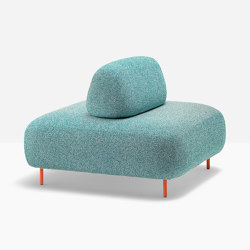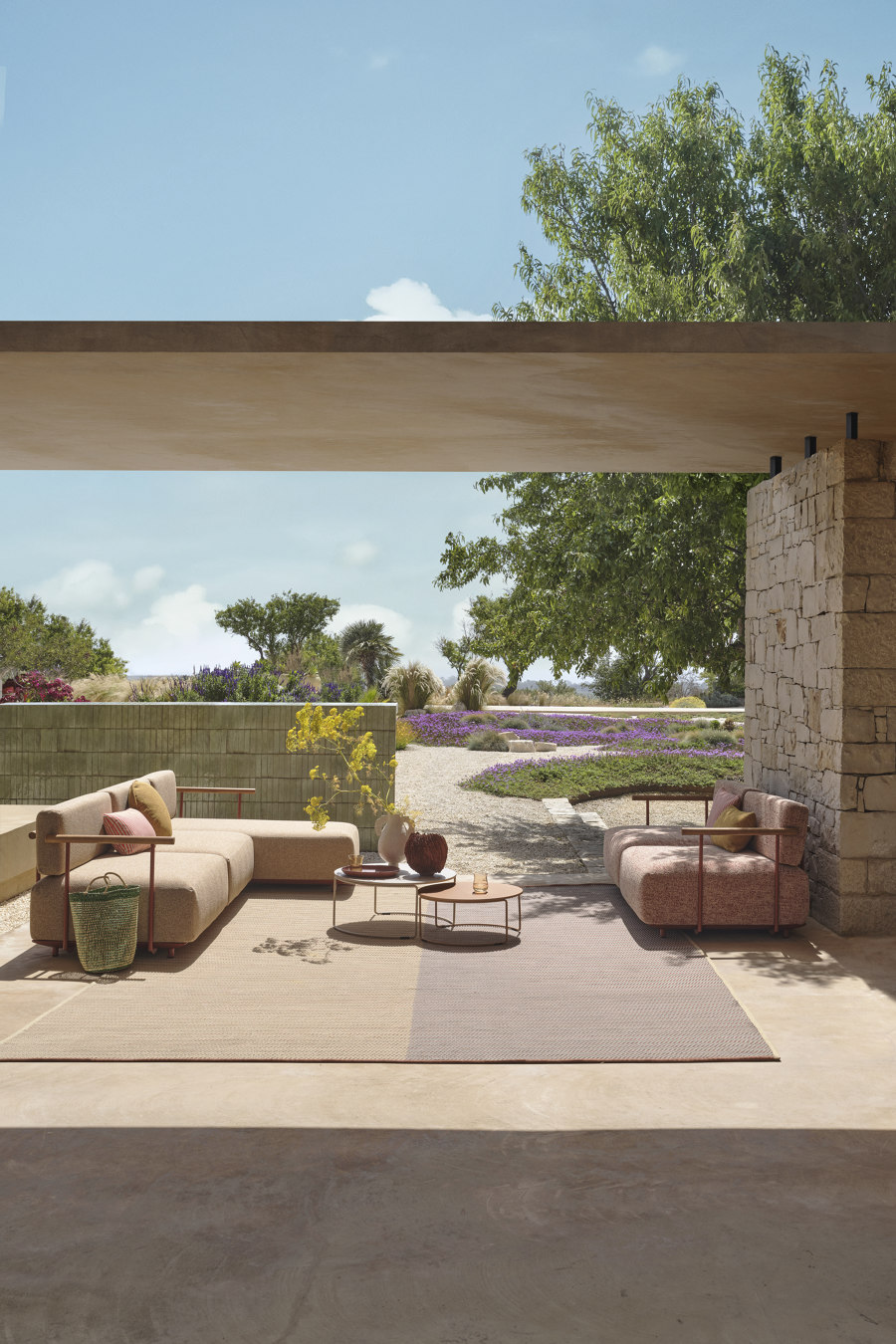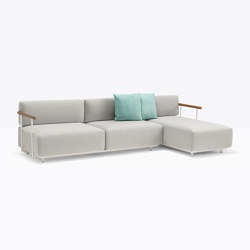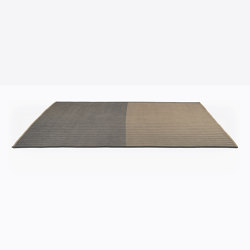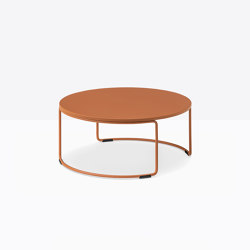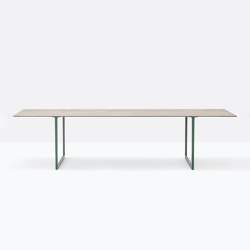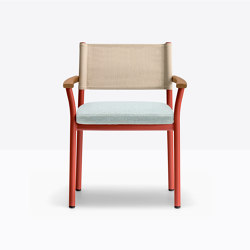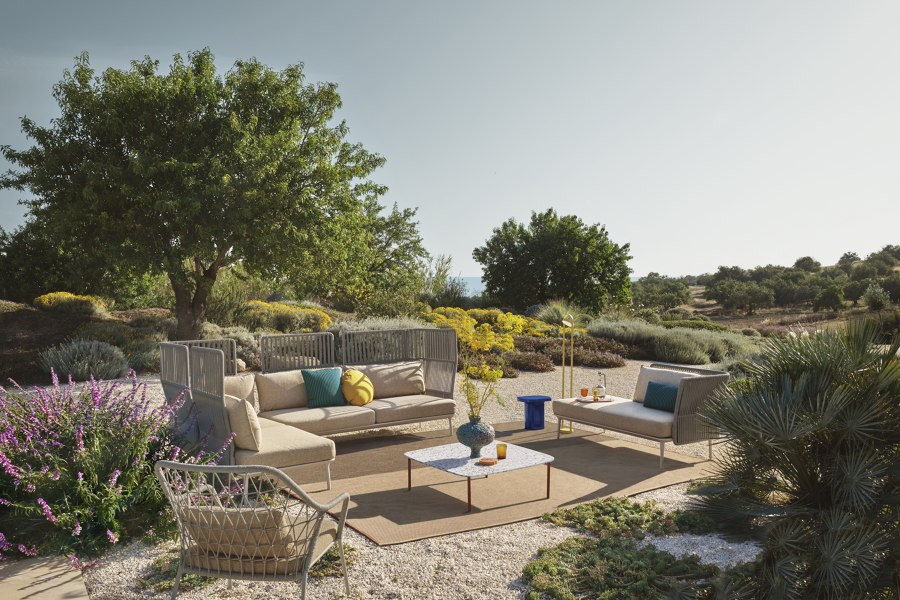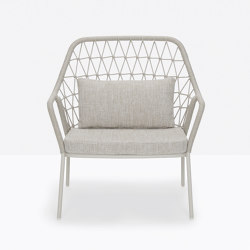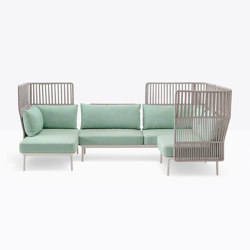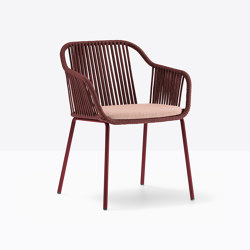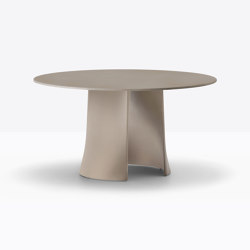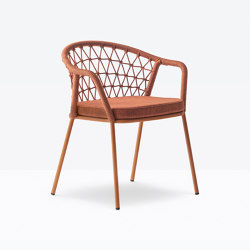Made of Italy: Pedrali on craftsmanship, industry and sustainability
Storia del Marchio di Simon Keane-Cowell
MORNICO AL SERIO (BG), Italia
16.10.24
Architonic sits down with CEO Monica Pedrali to discuss the changing nature and meaning of Italian design.
Pedrali, the Italian design manufacturer, blends cultural heritage with innovative design in the new outdoor collection, Buddy Oasi, through the careful selection of materials, colours and textures
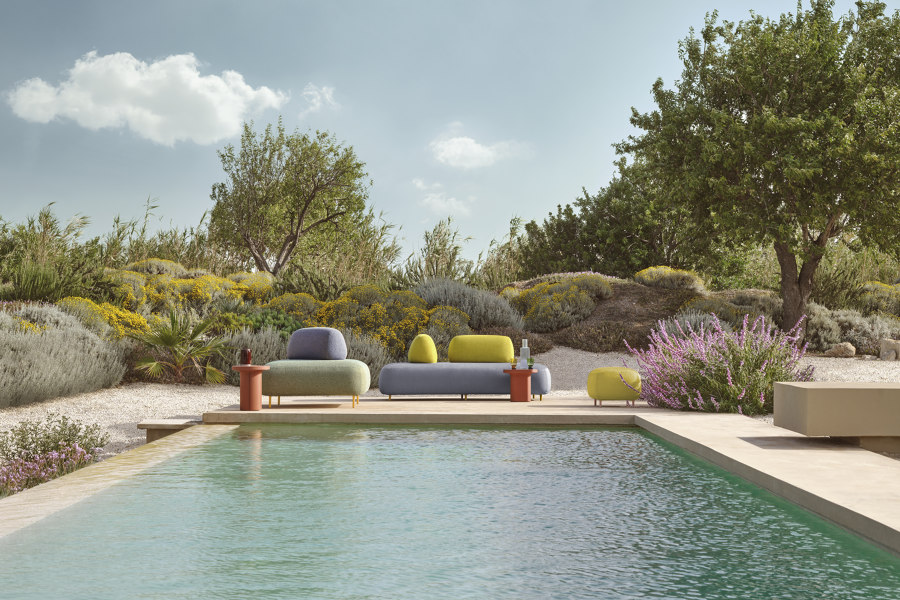
Pedrali, the Italian design manufacturer, blends cultural heritage with innovative design in the new outdoor collection, Buddy Oasi, through the careful selection of materials, colours and textures
×In a previous life, I was Italian.
The richness of the ‘bel paese’, with its artistic and cultural heritage, architecture, food and fashion – and, naturally, design prowess – all speak my kind of language. Even though I don’t speak the language. (Shame on me.) Italians, if you ask me, really do do it better.
Take Pedrali. Headquartered in Bergamo, which sits in the country’s industrial-powerhouse region of Lombardy, the big-player design manufacturer does what Italian design does best. It melds a material-cultural inheritance, expressed through material choice, colour and texture, with state-of-the-art industrial production. If you ever have the chance to visit the Pedrali factory, first of all, go, and secondly, be prepared to meet a lot of craftspeople working alongside a lot of robots.
The Pedrali collection, Caementum, has evolved with new glossy finishes, beautifully contrasting with the landscape of Sicily and showcasing a variety of vibrant colours
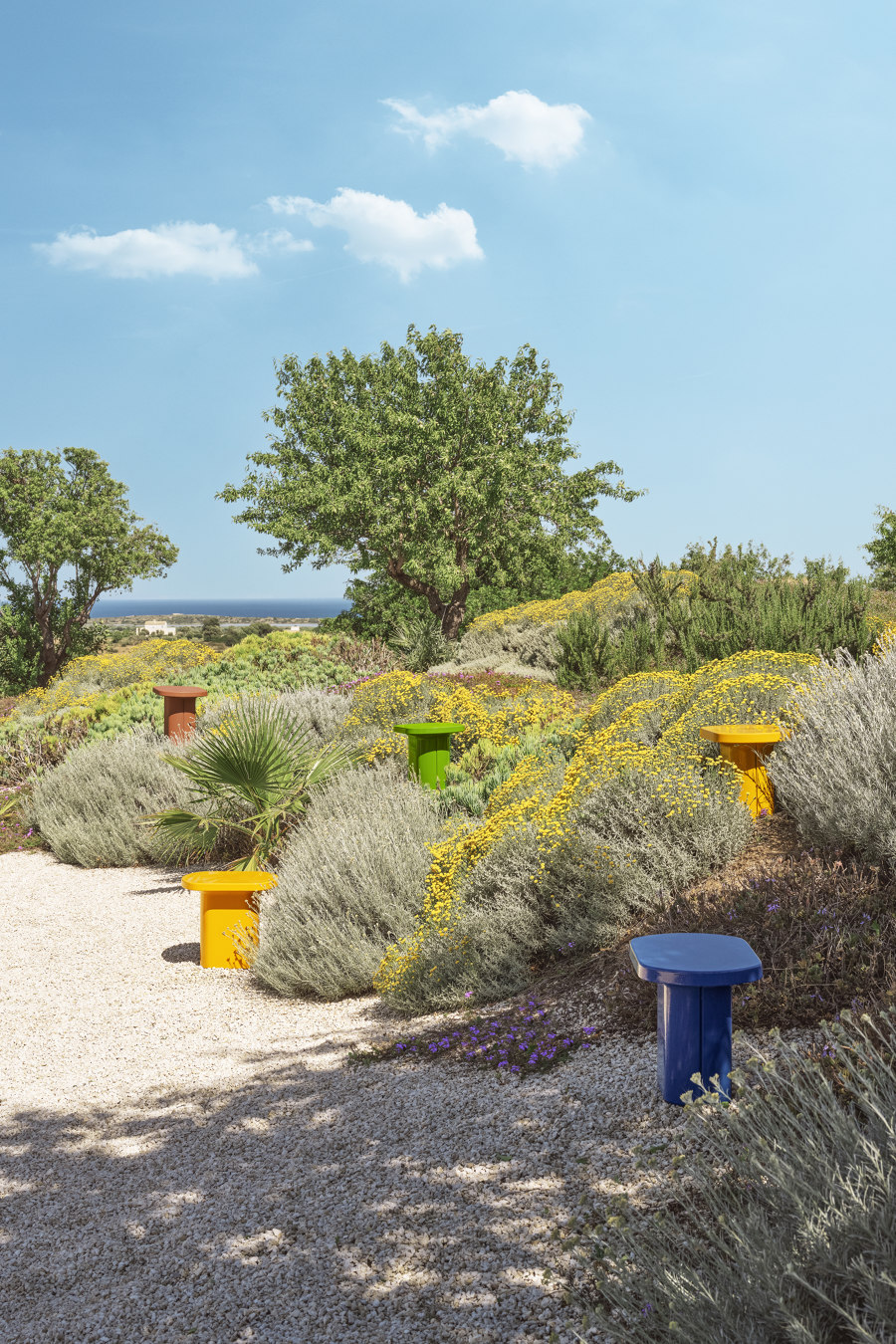
The Pedrali collection, Caementum, has evolved with new glossy finishes, beautifully contrasting with the landscape of Sicily and showcasing a variety of vibrant colours
×The company, like so many Italian companies, is a family affair. Headed up by Monica and Giuseppe Pedrali, whose father, Mario, founded the business over 60 years ago, the company’s DNA is a reflection of the familial one. Design is in the blood – and of the blood. There’s skin in the game. And it’s this that makes Italian design different. ‘Made in Italy’ is not just about aesthetics, it’s about design as an expression of a social, cultural and geographical heritage. People and place.
‘Italian design emerged from a synergy between architects and craftsmen, a collaboration that laid the foundations for a unique and distinctive approach’
The latest Pedrali outdoor-furniture campaign testifies to this. Shot on location in Sicily at the start of the summer, its images feature the brand’s furniture products set against the light, colours, natural forms and vernacular architecture of the Mediterranean. Dry-stone walls and hand-painted majolica tiles, together with olive trees and cacti, become supporting actors on an al-fresco stage to designs by Patrick Jouin, CMP Design, Odo Fioravanti and Robin Rizzini, among others. It’s a highly considered visual dialogue that seems effortless.
Blending harmoniously with the dry-stone walls of Mediterranean architecture, the Arki-Sofa (above), the Guinea chair and the Toa table (below) create a comfortable and inviting outdoor living area
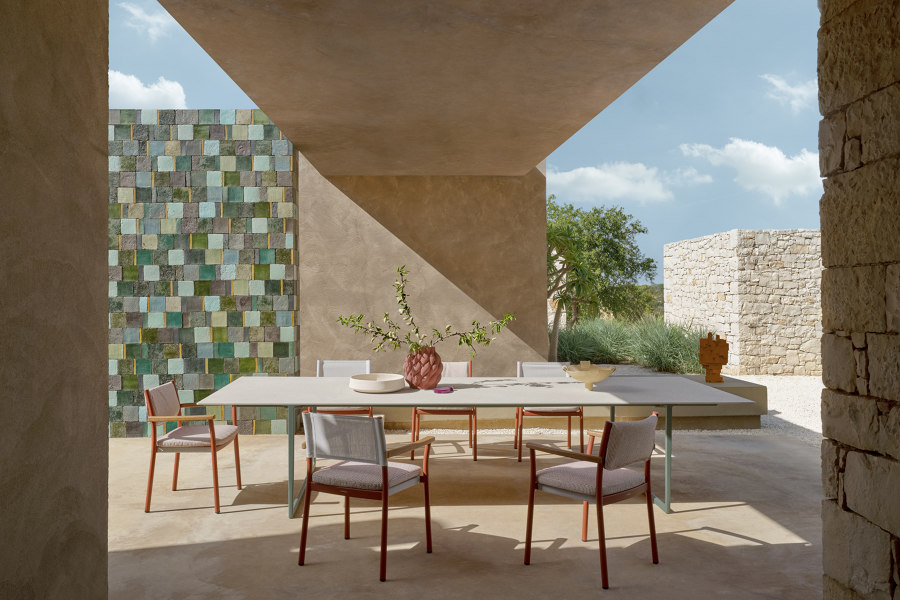
Blending harmoniously with the dry-stone walls of Mediterranean architecture, the Arki-Sofa (above), the Guinea chair and the Toa table (below) create a comfortable and inviting outdoor living area
×I caught up with company CEO Monica Pedrali in Bergamo recently, where we talked, among other things, about what ‘Made in Italy’ means today for an innovation- and sustainability-minded design manufacturer.
What's particular about Italian design and Italian design culture?
Italian design emerged from a synergy between architects and craftsmen, a collaboration that laid the foundations for a unique and distinctive approach. Moreover, there’s a desire to experiment and explore new solutions that fuel the passion between designers and manufacturers. This bond has seen craftsmanship evolve into industry, aided by skills that are rooted in the region and the development of specialised machinery. It’s critical, however, that industrial development considers and preserves craftsmanship, in order to maintain the quality and authenticity that make ‘Made in Italy’ unique.
‘A company should be viewed as a genuine community of people working together on product development, and Pedrali is a concrete example of this’
How does Pedrali fit into this landscape?
I like to think that every product has two parents: a father, the designer; and a mother, the brand. A company should be viewed as a genuine community of people working together on product development. Not just prototype makers and technicians, but also individuals responsible for communication, product launch, sustainability, and even pricing.
Pedrali is a concrete example of this. We’ve always given significant space to young people, both as designers and as new talents within the company. This has enabled the development of a passion for the furniture and design sector, contributing to its growth. Today, our team includes over 30 different specialised degrees, demonstrating the abundance and variety of internal expertise. What’s more, a multigenerational coexistence, along with the mentoring of young people by the experienced ones, has made it possible to preserve and pass down our know-how.
The ‘Made in Italy’ excellence of Pedrali's outdoor furniture is reflected in the durability and craftsmanship of the Reva Cocoon sofa (above), alongside the Anemos table and the Babila Twist chair (below)
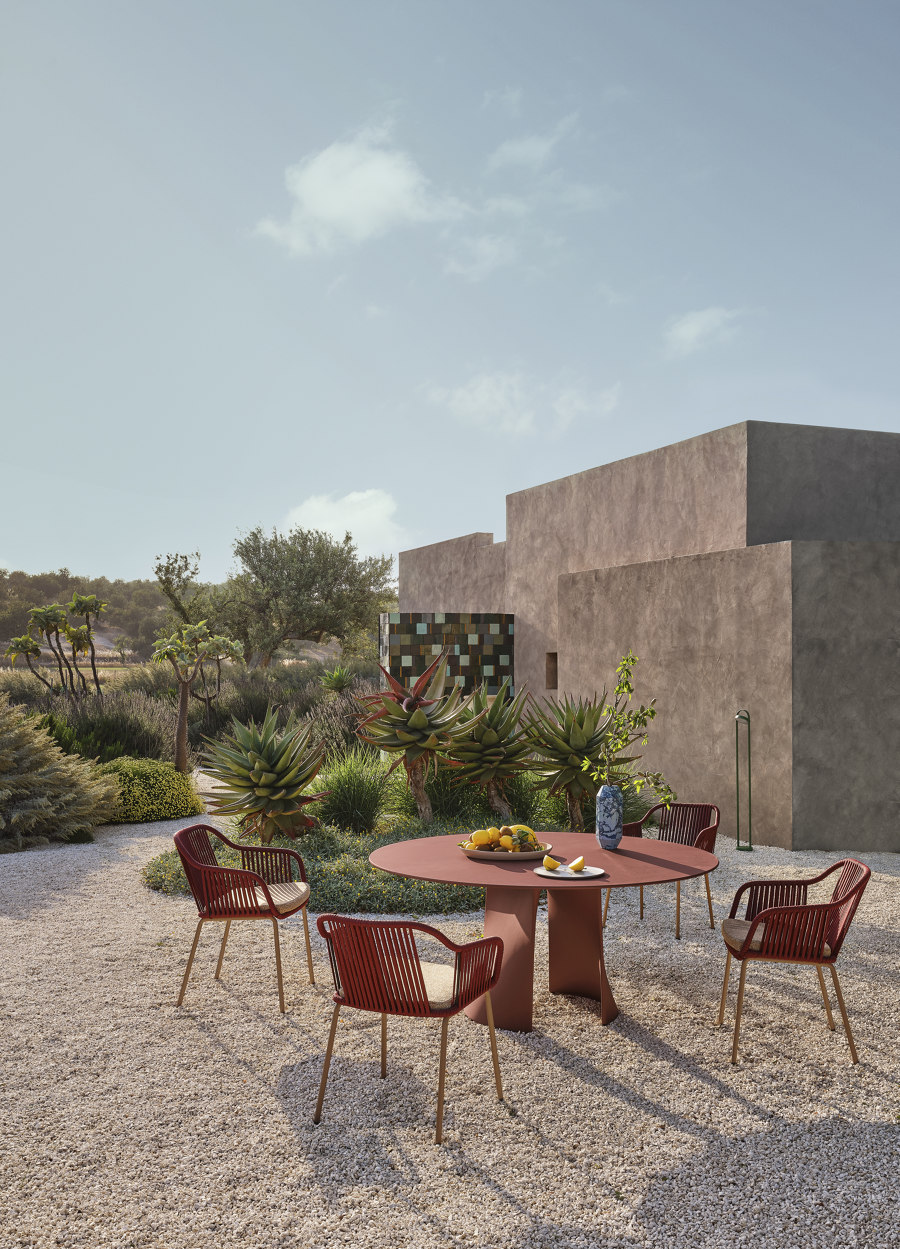
The ‘Made in Italy’ excellence of Pedrali's outdoor furniture is reflected in the durability and craftsmanship of the Reva Cocoon sofa (above), alongside the Anemos table and the Babila Twist chair (below)
×What does ‘Made In Italy’ mean today?
‘Made in Italy’ today represents not only a guarantee of quality and design, but also a commitment to preserving artisanal traditions by integrating them with technological innovation and sustainable production. It is a symbol of excellence that goes beyond the finished product, including the entire supply chain that makes it possible: from the use of high-quality raw materials to the sustainable approach, from the collaboration with local craftsmen and suppliers to the cutting-edge technologies.
Our aim at Pedrali has always been to keep production in Italy, even when this has meant economic challenges, to protect and enhance precious local craftsmanship. And in the past five years, we’ve started measuring our Corporate Carbon Footprint, and over the past three years, we have managed to reduce our CO2 emissions by 21%. What’s more, today, the energy in our factory is entirely obtained from plants powered by renewable sources.
Pedrali’s Panarea chair, set against a picturesque Italian landscape, underscores the brand’s dedication to preserving the authenticity that defines ‘Made in Italy’
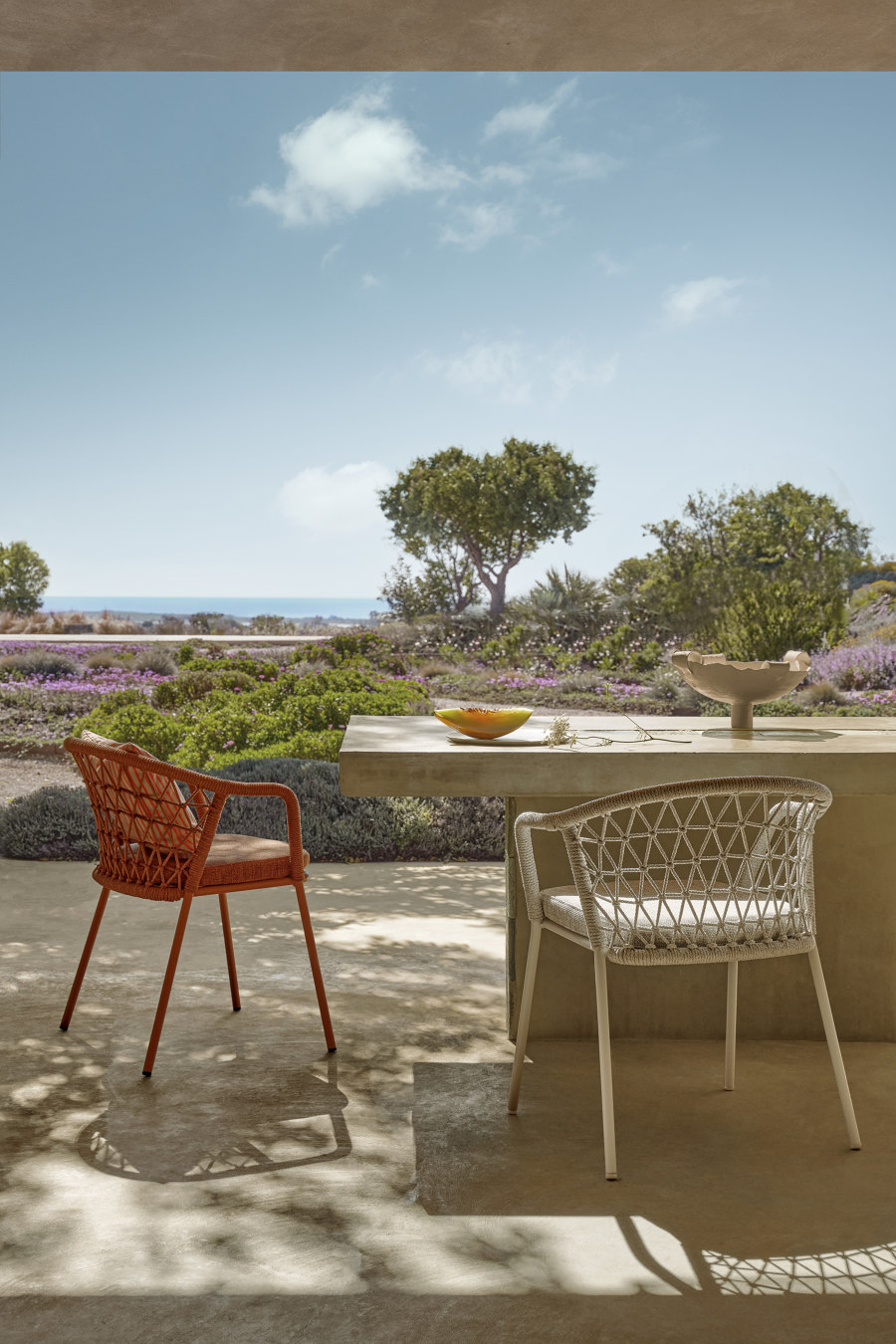
Pedrali’s Panarea chair, set against a picturesque Italian landscape, underscores the brand’s dedication to preserving the authenticity that defines ‘Made in Italy’
×And what does sustainability mean for Pedrali?
Creating durable products, both in terms of aesthetics and resilience, is the key to delivering sustainability. From the design phase, Pedrali’s furniture is conceived to be disassembled and produced through processes aimed at limiting consumption. Products made from wood are FSC® C114358-certified, ensuring the use of wood from certified forests, and we use water-based coatings composed mostly of plant-derived resins. Several products in the Recycled Grey collection are ReMade in Italy®-certified, the first Italian voluntary product certification for the verification of the recycled content in a product. It guarantees the traceability of materials within the production chain, starting from the verification of the origin of incoming raw materials up to the output of new recycled products.
Monica (above) and Giuseppe Pedrali, whose father, Mario, founded the business over 60 years ago, are dedicated to ‘Made in Italy’ Pedrali design. Photo: DSL Studio
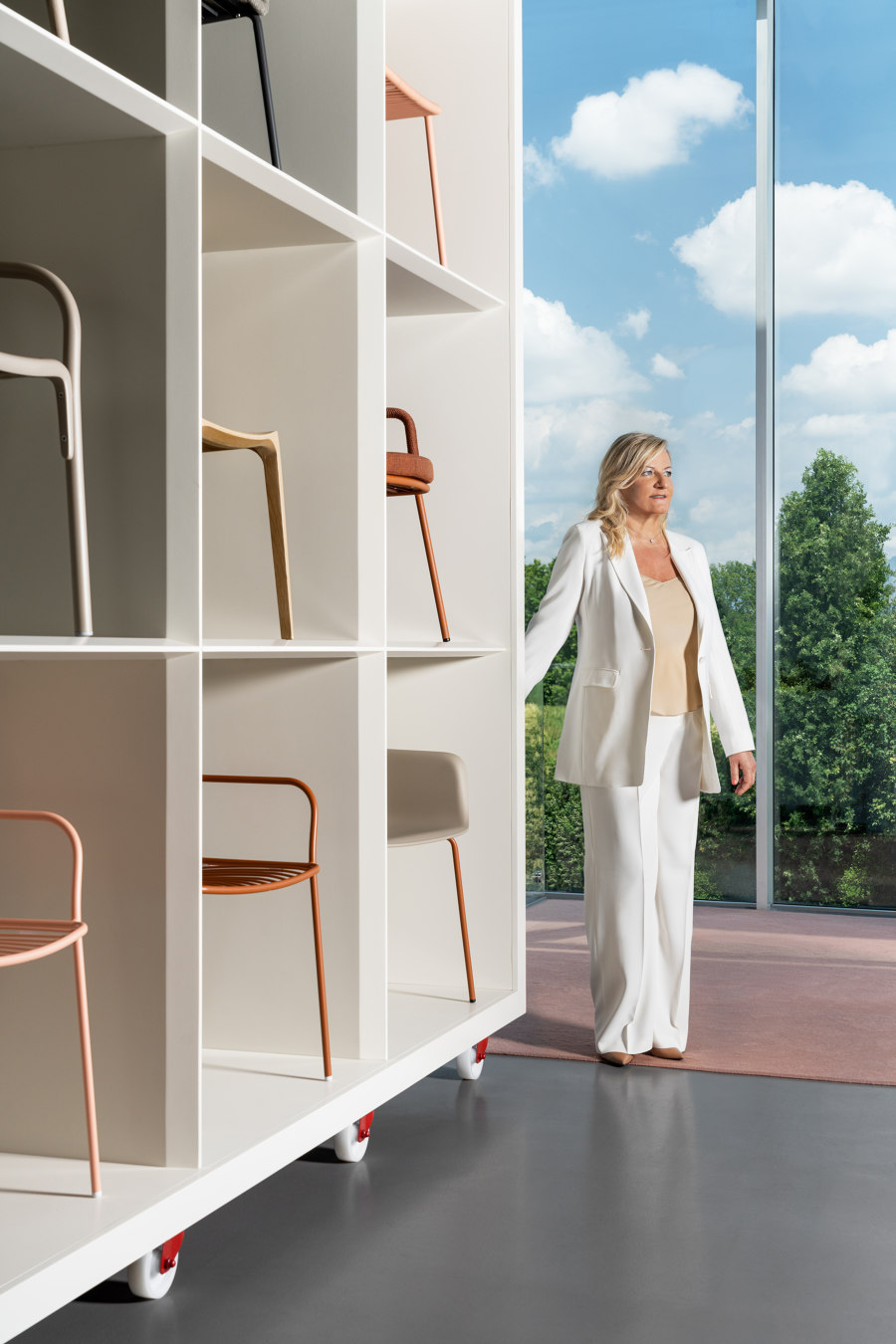
Monica (above) and Giuseppe Pedrali, whose father, Mario, founded the business over 60 years ago, are dedicated to ‘Made in Italy’ Pedrali design. Photo: DSL Studio
×People, their skills and dedication, together with innovative technologies, are the true driving force behind this evolution. This is why we’re particularly proud to be able to publish our first sustainability report this year, one year earlier than required.
Credits:
This latest Pedrali outdoor-furniture advertising campaign, shot on location in Sicily, is a collaboration between Pedrali, photographer Andrea Garuti, with art direction by Studio FM milano and set design and styling by Studio Salaris.
© Architonic
Head to the Architonic Magazine for more insights on the latest products, trends and practices in architecture and design.


